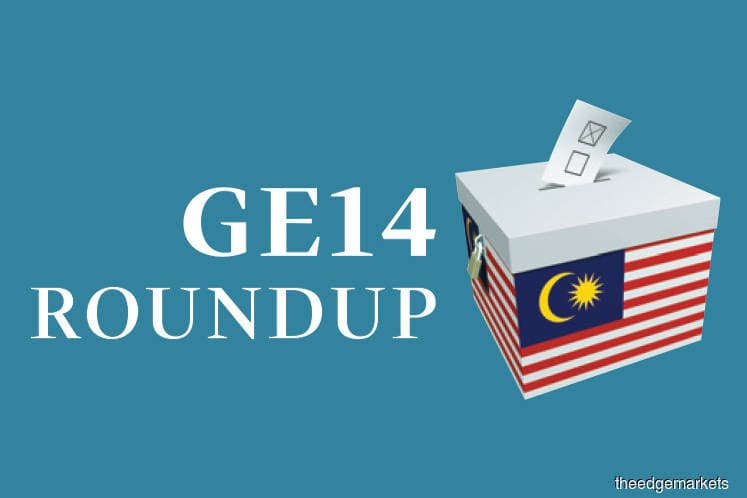
This article first appeared in The Edge Malaysia Weekly on May 21, 2018 - May 27, 2018
MALAYSIANS have spoken loud and clear. They have voted in a new, vibrant Pakatan Harapan (PH) government, replacing the old, tired Barisan Nasional (BN) regime that has ruled the country since its formation.
The transition saw some hiccups the day after the polls, with the anticipated swearing-in of Tun Dr Mahathir Mohamad as the new prime minister carried out only late at night. Before that, outgoing prime minister, Datuk Seri Najib Razak had mentioned the constitutionally erroneous requirement of a “partisan” parliamentary majority to form the government.
In the end, Mahathir took his oath of office and the country breathed a collective sigh of relief. Power was peacefully transferred in the first regime change in Malaysian history.
The high hopes of the populace come, of course, with high expectations, of which there are at least two interrelated broad sets.
The first has more to do with socioeconomic matters. The Najib administration had for a long time conspicuously trumpeted Malaysia’s “spectacular” economic growth of over 5% even as some regional economies have yet to recover from the global financial crisis a decade ago. But the average Malaysian simply does not feel he is reaping the benefits of the avowed growth. Small and medium enterprises cry out that “business is difficult these days” while the low and middle-income groups denounce the rising cost of living.
Rightly or not, they blame the socioeconomic hardships mainly on the imposition of the Goods and Services Tax (GST) that has allegedly dampened enthusiasm for business ventures and decreased consumer demand. This is perhaps the single biggest socioeconomic factor that contributed to BN’s downfall. PH promised in its manifesto to abolish GST within 100 days of taking power, and the timely announcement that it will be abolished next month, despite many supposed experts advising otherwise, is warmly welcomed.
If only these so-called experts were privy to the horrendous wastage and tremendous leakages that prevailed under the former kleptocratic regime — and I hope these misdeeds will be gradually revealed — I am confident they will agree that any budgetary shortfall due to the abolition of GST would not be difficult to meet.
In fact, it is preferable that a “healthy” government does not bring in too much revenue, via GST or other means, and embark on various mind-boggling spending programmes. I am, for example, extremely ambivalent about PH’s pledge to bring back petrol subsidies. Subsidies distort the functioning of a free market and they could prolong “unhealthy” habits, such as individual private transport for all. If similar amounts were instead used for building better public transport infrastructure or even encouraging carpooling, instead of being spent on subsidies, it would go a long way towards preserving our environment and delaying climate change. The government and the people must learn to be prudent in their spending, ensuring that it is commensurate with their income levels.
Mahathir moved swiftly to appoint Datuk Seri Dr Wan Azizah Wan Ismail as the country’s first woman deputy prime minister as well as three core ministers to head the finance, defence and home affairs portfolios. In addition, a Council of Eminent Persons, consisting of former policymakers, businessmen and academics, was set up to advise on economic and financial matters. These measures are meant to reassure the international and domestic markets that “Malaysia means business” and “Malaysia is (once again) open for business”.
Mahathir even took time off his busy political schedule in these early days of putting together a new government to take part, via teleconferencing, in a financial conference in Japan. And the markets responded enthusiastically, with the stock indices exhibiting upward trends and the ringgit’s value holding steady at the close of the first business day after the election.
Another set of high expectations of the PH government has to do with institutional, legal and perhaps even political reforms and “returns”. For the longest time since independence, the BN regime has systematically decimated the various check-and-balance and division-of-power mechanisms — enshrined in our constitutional traditions — to entrench its political and economic vested interests. It summarily bulldozed anti-democratic laws through parliament and ruthlessly enforced them as well as antiquated, colonial-era repressive laws, primarily enacted to combat communist guerillas, to suppress dissent and alternative views unfavourable to the regime.
I also welcome the appointment of the committee on institutional reform, with members who are former judges, social activists and academics, which is supposed to recommend much-needed reforms of the country’s institutions. The independence of the judiciary, impartiality of the attorney-general’s office, incorruptibility of the Malaysian Anti-Corruption Commission and neutrality of the Election Commission, among others, should be properly defined and safeguarded.
The numerous intelligence services should refocus their vast resources on acute matters that truly impact our national security, such as suspected terrorist activities and foreign espionage, and not on surveillance and intimidation of legitimate political opposition or peaceful social activism. Bad laws that serve only to restrict constitutionally protected fundamental freedoms of the people, such as the arbitrarily enforced Anti-Fake News Act and Sedition Act, should be summarily scrapped.
The civil service must be realigned in its thinking and actions, such that it truly executes the policies of the government of the day and does not serve partisan interests.
PH won the trust and confidence of the Malaysian people for a five-year term to “fix things” and improve their livelihood. It must work doubly hard to prove it has earned the mandate, and the people will be watching it closely to see if it indeed fulfils its reform promises.
Dr Oh Ei Sun advises policy institutes in Malaysia and abroad. He was political secretary to the prime minister from 2009 to 2011.
Save by subscribing to us for your print and/or digital copy.
P/S: The Edge is also available on Apple's AppStore and Androids' Google Play.